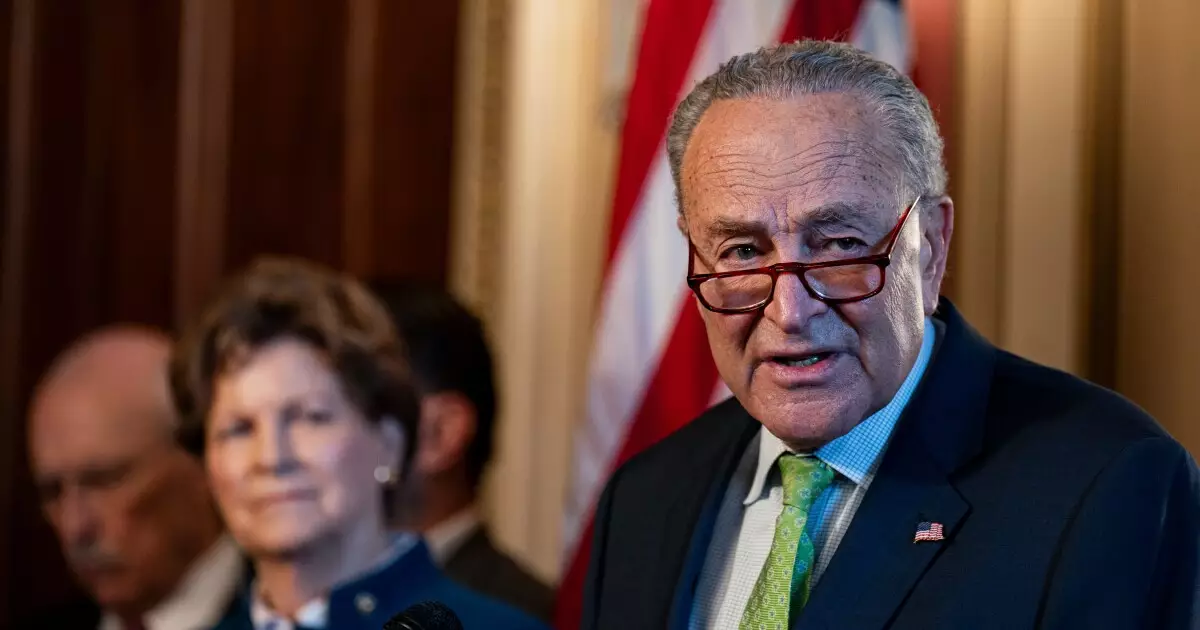The recent rescinding of a federal funding freeze directive by the White House has brought to the forefront a complex interplay of legal, political, and administrative dynamics that highlight the contentious nature of current federal policies. This article aims to delve into the implications of this decision, the ongoing legal battles, and the broader themes surrounding governmental authority and funding directives.
On January 29, the Office of Management and Budget (OMB) issued a memo designed to put a halt to the distribution of certain federal funds, triggering immediate backlash and confusion among states and various organizations. The memo appeared to be an attempt to align federal funding with several executive orders signed by President Donald Trump, which focused on contentious issues such as immigration policy and the implementation of diversity and equity programs. This initiative was perceived by many, particularly congressional Democrats, as an overreach of executive power, undermining the traditional checks and balances that govern federal funding distribution.
The fallout from this directive was swift, resulting in numerous legal challenges spearheaded by Democratic-led states. A federal judge in Rhode Island ruled in favor of these states, allowing them to pursue legal actions against the administration to seek clarity and accountability in its funding procedures.
In response to the backlash, the White House rescinded the controversial memo. However, the legal complications did not dissipate. Following the rescission, states filed a fresh motion seeking a 14-day stay, indicating their concerns over persistent threats to federal funding sources. The argument presented by these states hinged on statements from White House officials that suggested the funding freeze could reemerge despite the memo’s cancellation.
Amidst this uncertainty, the Department of Justice’s necessity to respond within a tight timeframe of 24 hours added a layer of urgency to the proceedings. Concurrently, a judge overseeing a similar case involving a coalition of nonprofit organizations instituted a stay on the enforcement of the funding pause until February 3, further complicating the situation.
The rescinded funding freeze supplied congressional Democrats with an opportunity to criticize the administration’s approach to governance. Prominent voices, such as New York Senator Chuck Schumer, emphasized the cyclical nature of executive overreach by asserting that this would not be an isolated incident. Schumer’s comments reflect a broader sentiment within the party that the current administration will continuously attempt to impose policies that circumvent congressional authority, especially in matters related to federal funding and assistance.
The tension between the executive branch and legislative bodies underscores a significant concern within democratic governance, questioning the legitimacy and limitations of executive powers. The nature of these disputes reveals a deeper ideological divide that not only relates to funding but also to the broader vision of government spending, equity initiatives, and the role of federal authority over state policies.
With the attendant legal challenges and political maneuverings, the quest for clarity in federal funding policies remains unfulfilled. While the administration sought to clarify that the funding pause was narrowly defined to align with specific executive orders, ambiguity remained. The press secretary’s communications, stating that the rescission did not imply an end to potential funding freezes, illuminated the precarious position that states and entities reliant on federal assistance find themselves in.
The uncertainty surrounding future funding decisions threatens not just state budgets but also the efficacy of programs intended to address critical issues such as infrastructure, public health, and social equity. As indicated by ongoing legal proceedings, the intricate relationship between federal directives and state responsiveness continues to evolve, highlighting the necessity for transparency and consistency in federal dealings.
The White House’s action to rescind the federal funding freeze memo has not quelled unrest regarding executive authority or the administration’s intentions for forthcoming policies. The ongoing legal battles and political discourse demonstrate a significant concern over the implications of executive decisions on federal funding dynamics. As the landscape continues to shift, it remains imperative for all stakeholders—both governmental and non-governmental—to advocate for a coherent and principled approach that respects the established legislative framework and fosters trust in the integrity of federal funding processes.

